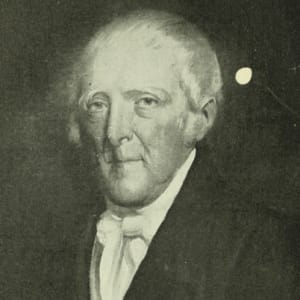
Michelle Akers
American soccer star Michelle Akers overcame her battles with chronic fatigue syndrome and led the U.S. to victories in the 1991 and 1999 World cups.
Synopsis
Born on February 1, 1966, in Santa Clara, California, Michelle Akers was a four-time collegiate All-American and an early star on the U.S. women's national soccer team. She led the U.S. to victories in the 1991 and 1999 World Cups and the 1996 Olypmics despite battling chronic fatigue syndrome for much of her career. After retiring in 2001, Akers founded a non-profit to care for rescued horses.
Early Life and Collegiate Career
Professional athlete Michelle Anne Akers was born on February 1, 1966, in Santa Clara, California, and spent much of her childhood in Seattle, Washington. Intense and hard-nosed, she developed her soccer skills by competing against neighborhood boys, and became a three-time All-American at Seattle's Shorecrest High.
Akers cemented her reputation as an elite athlete during a stellar career at the University of Central Florida, where she earned four All-America selections and finished as the school's all-time leading scorer. In addition, she was named the inaugural winner of the women’s Hermann Trophy in 1988 as the top player in collegiate soccer.
National Superstar
An original member of the U.S. women's national soccer team, Akers scored the first goal in team history against Italy on August 18, 1985. At 5'10" and 150 pounds, she was an imposing figure on the pitch, and she helped bring the American women to prominence with her tremendous all-around ability.
During the inaugural FIFA Women's World Cup in 1991, the powerful center-forward rung up a whopping five goals in a quarterfinal victory over Taiwan, and scored both goals in the Americans' two goals in the final for a 2-1 victory over Norway. Akers finished with 10 goals to earn the Golden Boot as the tournament's top scorer, and was named the Silver Ball winner as its second-best all-around player.
Utterly exhausted after the World Cup, Akers was diagnosed with Chronic Fatigue and Immune Dysfunction Syndrome. She learned to manage her diet and training habits, and was shifted to the midfield in part to minimize the beatings doled out by opposing defenders. Despite the precautions, Akers suffered a concussion and a knee injury early in the 1995 World Cup, and was hampered by the knee in a semifinal loss to Norway.
Akers returned to help the U.S. claim the gold medals at the 1996 Olympics and the 1998 Goodwill Games. That year, she was also honored with the FIFA Order of Merit for her positive contributions to the game.
Akers's final turn in the soccer spotlight came during the 1999 World Cup. Although no longer the clear-cut star of a squad that featured scoring machine Mia Hamm and goalkeeper Briana Scurry, Akers struck a key goal to help defeat Brazil in the semifinals, and was named to the tournament All-Star team after the Americans' memorable shootout victory over China in the finals.
Akers relinquished her spot on the U.S. team a few weeks before the start of the 2000 Olympics due to her slow recovery from a shoulder injury. She announced her official retirement from the sport in October 2001, her 105 goals in international competition second only to Hamm in U.S. women's history.
Post-Soccer Career and Legacy
Akers's place among soccer's all-time greats was confirmed with a number of accolades after her retirement. She was named FIFA Female Co-Player of the Century in 2000, and was voted to the National Soccer Hall of Fame in 2004. In addition, she joined Hamm as the only two women named to the FIFA 100, a list of the greatest living soccer players selected by Brazilian legend Pelé.
In recent years, she has devoted her time to conducting soccer clinics and running the Michelle Akers Horse Rescue & Outreach, Inc., a non-profit dedicated to caring for abandoned horses and other animals on her farm in Powder Springs, Georgia.




